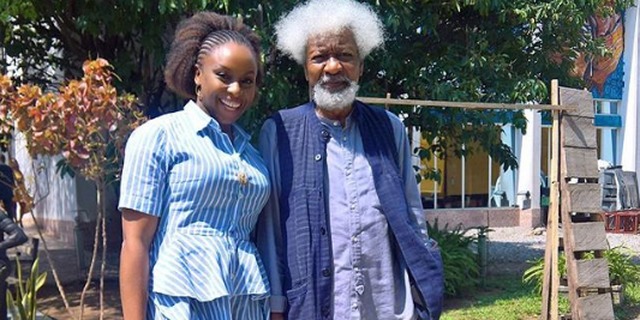
In an interview on Arise TV on Tuesday night, renowned novelist Chimamanda Adichie expressed her disagreement with Nobel laureate Prof Wole Soyinka over his comments on the Labour Party’s vice presidential candidate, Datti Baba-Ahmed.
Adichie stated that Soyinka’s description of Baba-Ahmed’s comments as fascist was a strong word and not appropriate for the situation.
Adichie explained her viewpoint, stating, “I think fascism is a really strong word, which often made me think of Mussolini of Italy. We use it now. I do not see any reason Datti Baba-Ahmed’s interview would have been termed fascist.
I think he was making a very strong and fair point about the election and he was saying, which again, I thought is fairly reasonable, that if our democracy is rooted in the constitution and you then swear in a person who is being elected unconstitutionally, and you are in fact ending democracy. I think it is quite a reasonable position.”
She further elaborated on her stance and stated that the election period had allowed her to read the Nigerian constitution and make suggestions for editing.
Adichie commented, “I don’t think it unreasonable for educated Nigerians who can read, who knows what the word ‘and’ means to make their own interpretations and to argue it and of course the fact that the Labour Party in court means that they do not believe that this election is constitutional and I didn’t quite see it should be termed fascist.”
Adichie, however, proposed some situations that she believes could be classified as fascist, such as INEC’s actions during the election, which many Nigerians feel cheated and deeply disfranchised by.
Adichie added, “Fascist is all of the violence that happened during the election. Fascist is the way some people remain silent about that violence.
A Fascist is a government that hasn’t come out to address the very tangible and palpable discontent in this country.”
Overall, Adichie disagreed with Soyinka’s characterization of Baba-Ahmed’s comments as fascist and believed that it was reasonable for educated Nigerians to make their own interpretations of the constitution.


















































